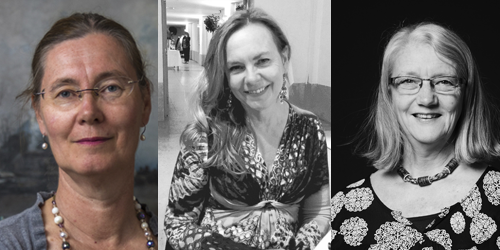Utilisation de la réponse esthétique, une enquête poétique pour étendre la connaissance, Partie II: Perspectives théoriques sur la recherche artistique
DOI :
https://doi.org/10.15845/voices.v17i1.913Mots-clés :
Arts-based research, Arts-based inquiry, Embodied felt sense, Implicit processing, Perceptual and affective building blocksRésumé
Les méthodes de recherche basées sur l'esthétique peuvent, à part s'inspirer à la fois d'une tradition interprétative et d'une tradition constructiviste, tirer parti d'une justification claire concernant ses blocs perceptifs dans les domaines intersubjectif et intra-psychologique. La complexité du partage des processus implicites et des connaissances tacites dans l'enquête basée sur les arts se reflète ainsi que les perspectives théoriques de ces entreprises. Une justification théorique de la raison pour laquelle il faut ajouter et reconnaître les principaux éléments perceptifs et affectifs de la recherche base sur les arts (RBA) est donnée. À travers les théories de la thérapie des arts expressifs, de l'investigation heuristique, de la théorie de l'attachement et de la neuroscience affective contemporaine, certaines réflexions sur le sentiment ressenti incarné comme centre de perception sont partagées. Basé sur la théorie de l'attachement contemporaine et la recherche en psychothérapie, une justification est donnée pour expliquer pourquoi l'engagement dans RBA peut offrir aux cliniciens et aux chercheurs une compréhension approfondie des phénomènes étudiés. Nos engagements sont présentés dans la première partie de ces deux articles. L'enquête basée sur les arts peut être considérée comme un moyen privilégié de nuancer et d'élargir la compréhension dans le domaine intersubjectif et intra-psychologique, ce qui pourrait être particulièrement utile aux chercheurs RBA qui sont informés d'un point de vue psychodynamique.
Téléchargements
Publié-e
2017-02-13
Comment citer
Gerge, A., Wärja, M., & Nygaard Pedersen, I. (2017). Utilisation de la réponse esthétique, une enquête poétique pour étendre la connaissance, Partie II: Perspectives théoriques sur la recherche artistique. Voices: A World Forum for Music Therapy, 17(1). https://doi.org/10.15845/voices.v17i1.913
Numéro
Rubrique
Research
Licence
Articles published prior to 2019 are subject to the following license, see: https://voices.no/index.php/voices/copyright

